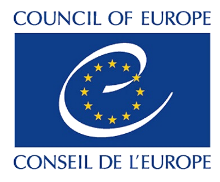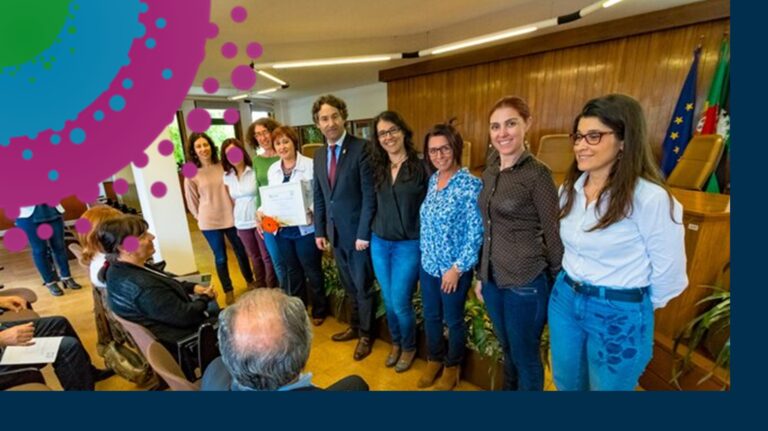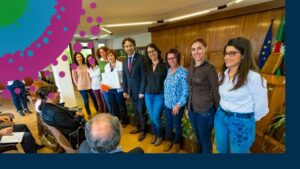Current status
Submitted
Discover more
After a contribution is submitted to BePART Forum, the initiative is marked as “Submitted”; as other partners involved in the initiative submit information from their side, the initiative is marked as “Under review” and goes through the validation process; twice a year, initiatives are validated by the BePART Working Group at the Council of Europe. Successful initiatives are marked as “Validated”. Do you want to learn more – click here
Contributor(s)
First contributor: Valongo City Hall
Summary
The Participatory Budget “I COUNT!” was implemented in the Municipality of Valongo in 2017, with the third edition currently suspended due to the World Pandemic to which the Municipality was unable to pass unharmed. Throughout these three years of implementation, participation has been high among employees of the Municipality of Valongo, which in this Participatory Budget is the target audience, with free participation. In 2017, the first year of implementation, where the stipulated budget was 2500€, 60 proposals were submitted, divided by 3 areas that were informally appropriated, namely: 16 proposals received in the area of intervention in spaces, 17 in the area of improvement at work and 27 in the area of provision of extra services. Of these 60 proposals received, 30 ended up as not approved, all duly justified with the articles of exclusion explicit in the Norms of Operation in force at the time.
Thirty projects were put to the vote, and the winner, with the highest number of votes received, was the project “Laughing is really the best medicine”. This project was implemented over a 12-month period, starting in October 2017, carried out through health and well-being sessions with Risotherapy and also birthday compensation for all employees. The first edition began with a value of 2500€ to implement a winning project and later the value doubled, thus becoming attached to the winning project 5000€. During these editions it was always clear that there could be more than one winner, and one of the main rules of this Participatory Budget is the fact that the value can cover the second or even the third place of the most voted, as long as it never exceeds the stipulated value in its implementations. We can also say that, in relation to the Rules of Operation that govern this Participatory Budget, they have been changed from edition to edition so that we can maintain the process of continuous improvement and perfect all the details and steps of the process.
This process also includes the constitution of the Technical Support Unit, implemented in the 3rd edition, which provides support in assessing all proposals received and in moving from proposal to project before they are put to the vote. Regarding voting, since the beginning, the Municipality’s employees have only had the opportunity to choose a project to vote on. In this third edition, the vote must contain 2 votes for each person who starts the voting process. If you do not complete it, your vote will be void.
Administrative level
Local (Valongo)
Year of implementation
2014
Policy area(s)
- (Local) Development and Planning
- Education, culture, and sport
- Youth
Further details
/
Sorry, no records were found. Please adjust your search criteria and try again.
Sorry, unable to load the Maps API.
/
Level of Participation
- Consultation
- Partnership
Discover more
By level of participation we refer to the type of involvement in the decision-making process. The levels are identified by the intensity of participation: going from “information” to “consultation” to ” dialogue” to “partnership”. Do you want to learn more – click here
Developed practice(s)
With this project, the citizens have a chance to share their opinions and different ideas for their cities. For the conclusion of these types of projects the proposals go through numerous stages, all in partnership with the City Hall.
Step(s) of the political decision-making process at which the practice was implemented
- Inputs/Incentive ideas for policy
- Decision – making on policy
- Implementation of policy
- Monitoring of policy implementation
Discover more
There are six different steps of the political decision-making process: agenda setting, drafting of policy, decision-making, implementation of policy, monitoring and reformulation of policy. Each step offer opportunities for CSOs and public authorities to interact. Do you want to learn more – click here
How the initiative was implemented
Situation
These are activities that intend to motivate citizens to participate more actively in their communities
Activities performed
Different stages: proposals, evaluating phase, voting, implementation
Tools and mechanisms applied
Social networks, outdoors, flyers, voting through messages
Goals of the civil participation initiative
At community level
It makes the community feel more represented, heard, and involved in their cities
From Civil society organisation’s perspective
/
From Public Authority’s Perspective
It helps with the development of citizen’s critical thinking, allowing them to see their creativity and different skills that will be useful for their future
Results expected prior to the implementation
- Since the beginning, the idea behind the creation of these projects, was to motivate citizens and push them to critically think about different aspects.
- The best method to make Valongo a better place with quality of life, is by asking citizens themselves and taking their ideas to improve it.
Immediate results achieved after implementation
Although these types of projects have a lot of potential, they are not always well received by the citizens. For them, this might look like just another project that won’t have any results. However, in Valongo, after the citizens started seeing the direct results of these various projects, they trusted the process.
Long-term impact
- In the long-term, these projects allowed citizens to trust the process and watch everything come true while also being more motivated to participate.
- These types of projects bring development to Valongo, not only to public spaces like parks and schools, but it also brought social and intellectual development, helping citizens to invest in their critical thinking about their city, all for its improvement.
Practice lessons learnt (obstacles and solutions)
| Agency (i.e., political conditions/power structures) | Obstacles | Distance of political structures from citizens |
| Solutions | More direct contact/informal language | |
| Legislative | Obstacles | Lack of legislation and preparation for participation process |
| Solutions | Creating new tools/ legislation for that matter | |
| Administrative | Obstacles | Processes that last long and are very dense |
| Solutions | Simplification (ex: online/electronic vote) | |
| Socio-cultural | Obstacles | Feeling that participation is not worthwhile/disinterest |
| Solutions | Promoting greater social cohesion | |
| Economic | Obstacles | Limit of the implementation budget |
| Solutions | Allocation of a significant amount of the City Hall’s general budget for the implementation of projects | |
| Human capital | Obstacles | The population’s lack of interest |
| Solutions | Development of critical thinking and new perspectives | |
| Other | Obstacles | Pandemic Crisis |
| Solutions | Online Methods |
Further information
/
Self-assessment
The self-assessment presents the opinion of the contributor about on what extent the following principles for Civil Participation have been reflected in the implementation of the initiative/practice/case-study, ranging from 1 (min) to 4 (max) (N/A: not applicable, do not know)
| Openness | 4 |
| Explanation | Valongo is a Municipality that is extremely open to new projects, new ideas, innovation, and change. This year, Valongo won the Green Leaf Award, this award is a European Commission initiative that recognises commitment to better environmental outcomes, with particular emphasis on efforts that generate green growth and new jobs. The financial award of €200,000 will be applied to initiatives that contribute to achieving environmental sustainability. Moreover, Valongo also won the Municipality of the Year with the project European Week of Local Democracy. This is a pan-European project, that happens every year to pay tribute to the European Local Authority Chart. This year Valongo extended this project for more than two months, with 200 activities, always looking for new ways to improve and motivate citizens to participate in their communities. Another interesting fact to keep in mind, is the innovative architectural design of the new City Hall in Valongo, which is being inaugurated in the next few years. This new City Hall will have the shape of a Trilobite, which is a marine species from the Palaeozoic era that lived hundreds of millions of years ago, long before the dinosaurs, in Valongo. Today, the trilobite is one of Valongo’s landmarks, having left behind countless fossils scattered around the municipality. The new and improved City Hall will be a representation of Valongo’s identity, transparency and multifunctionality. |
| Trust | 4 |
| Explanation | The trust that the Municipality of Valongo conveys to the citizens reflects a work of several years of communication and transparency and this is something that is projected in the new building of the City Hall. Indeed, the fact that we have invested in the use of glass throughout the whole building, shows the transparency behind our Municipality in which citizens can trust unconditionally. |
| Independence | 4 |
| Explanation | The Local Authorities independence is only obtained by financial independence. In 2013, Valongo recovered its financial independence which did not exist before the current President took office. At the time, the investment of the Municipality was increased while also settling the previous debts. The financial independence principle of local authority is connected to the transparency of governance to its citizens and this was achieved by the current office, allowing its residents to learn and participate in very diverse areas. |
| Participation | 4 |
| Explanation | In Valongo, we make sure we have processes that respond to the different audiences. For example, we created the Youth Participatory Budget, targeted for people from the ages of 6 to 35 years old, that have the power to decide how money from public budgets should be invested. The sum allocated is 200,000 euros, which will be distributed among 20 winning projects, that is, 10,000 euros for each project. In this project, there’s three different categories: Curricular, Extracurricular and Generations, which allows very diverse projects. |
| Transparency | 4 |
| Explanation | Valongo strongly invests in its transparency in all the processes that take place in the Municipality. A lot of citizens tend to question what kind of decisions their local authorities make and how they put the Municipalities money to work, but in Valongo we believe that the citizens deserve to have access to this information and because of this, we have a close relationship with them. As a result of this, the “Accountability Week” was created, with the motto “we are not afraid as we have nothing to hide”, hoping to make citizens have more trust in their local authorities. Considering this, we need to be transparent and as clear as possible, not allowing a very pronounced “top to down” system and, instead, promoting a more balanced partnership with our citizens. |
| Accessibility | 4 |
| Explanation | To motivate citizens to participate, we must make sure the information is accessible to all ages and social backgrounds. We must adapt and present the information to our citizens accordingly to their backgrounds, so Valongo invests in adapting its approach. Taking into consideration the recent pandemic crisis and to keep everyone connected and active, Valongo allowed the citizens to have access to different activities in person, but also online, for example free online Yoga classes and free psychological online counselling. Furthermore, Valongo created a space full of computers and technological gear, allowing all citizens to have access to it, all while decreasing the social gap. |
| Non-discrimination | 4 |
| Explanation | In Valongo, not only we value participation, but we also believe that everyone deserves a chance to be a part of this participation, so we create the platforms for that. For the Valongo’s Youth Participatory Budget, we include everyone from the age of 6 to 35 years old, ensuring that even young people and children feel like their voice is heard and what they must share matters. Moreover, Valongo pays attention to its foreign residents, so we created the first Open Café in Portugal. This is a project that helps include foreigners into the community, making them get to know new people, practice their language skills, while also debating different topics. Participation doesn’t depend on gender, race, nationality, it’s a right that belongs to everyone. |
| Inclusiveness | 4 |
| Explanation | To make sure everyone feels welcomed to participate, we must create the right tools to reach all these groups, creating different activities to include everyone. Considering we live in such a digital world, Valongo creates opportunities for young people to learn different methods, through the “Future Classrooms”, which consist in innovative learning labs and invests in the elderly, creating Municipal Actions like @IAMDIGITAL, in which volunteer help senior citizens to take their first steps on the internet. |
| Accountability | 4 |
| Explanation | Transparency and accountability are the basics of good public governance. Considering transparency of the activity and acts of the administration is a preventive measure of prime importance, Valongo’s City Hall cannot, however, consider itself immune to the occurrence of corruption or similar phenomena. Hence the continuing need to adopt measures to prevent them, which must be taken into account by those with management and executive functions, who have the special duty to raise the awareness of all employees to the possibility of reducing and mitigating management and corruption risks and, in this way, contribute to the development of an ethical culture in the institutions. |
Thank you for wanting to share your experience on the BePART platform!
Learn more about the submission process, or just fill the form below.



